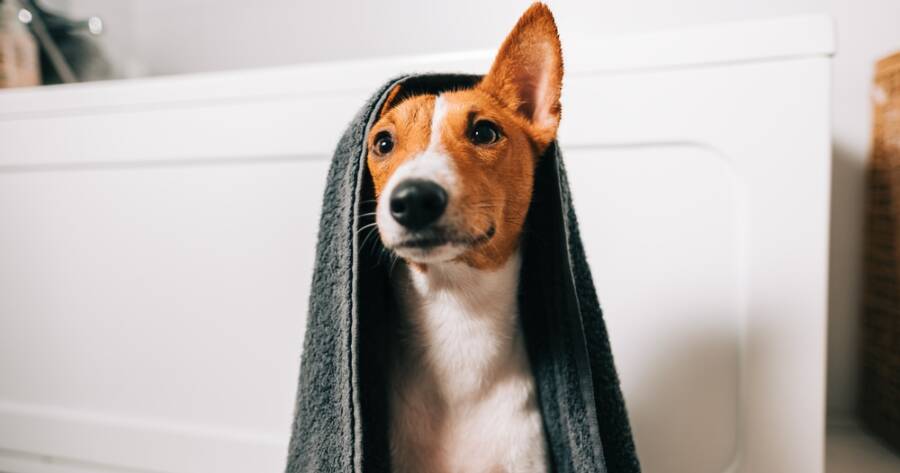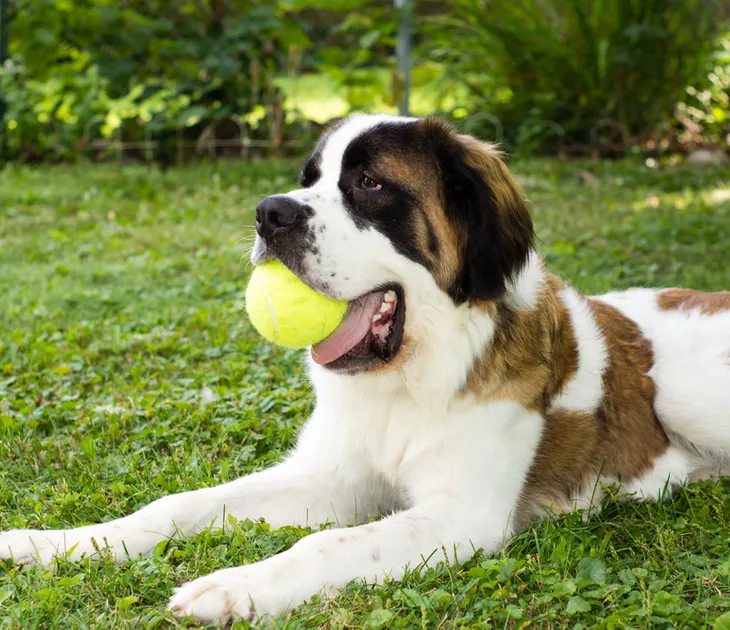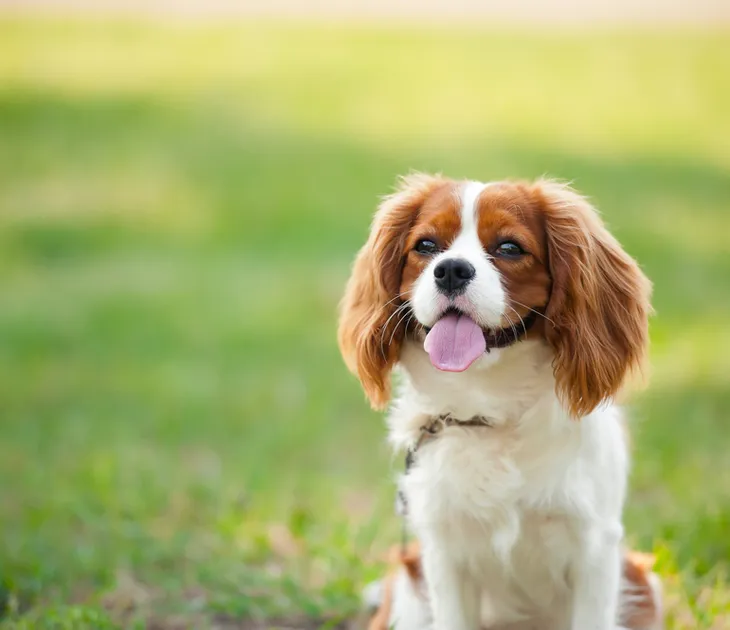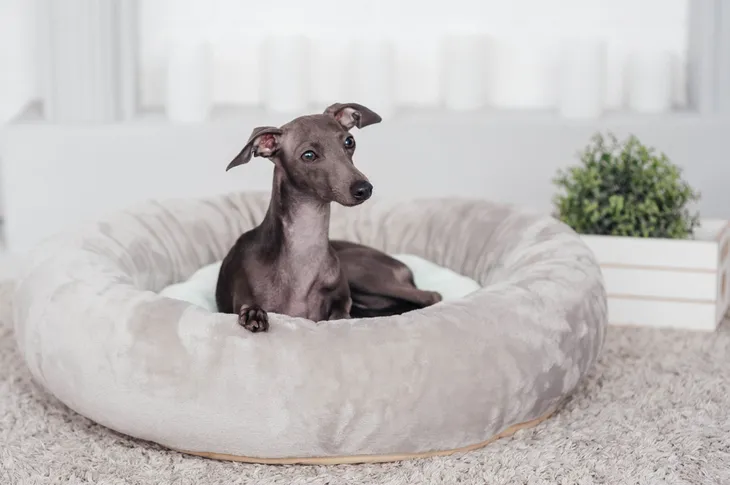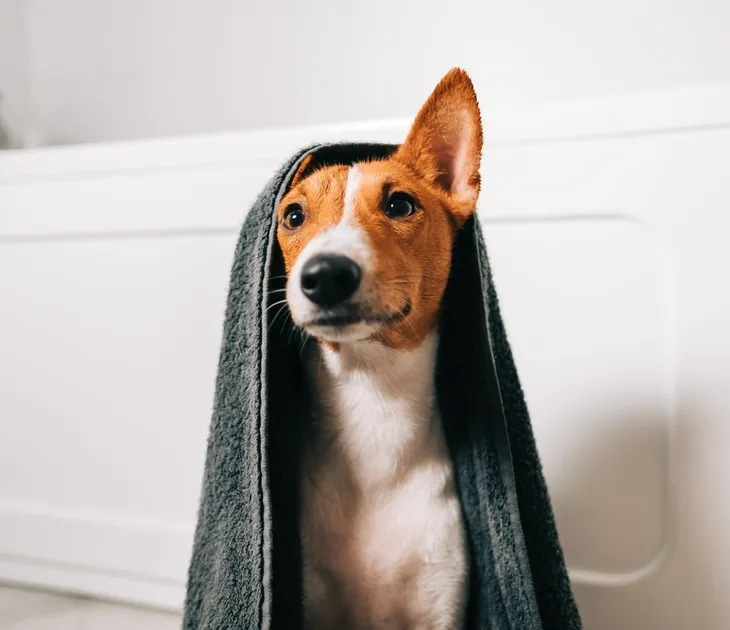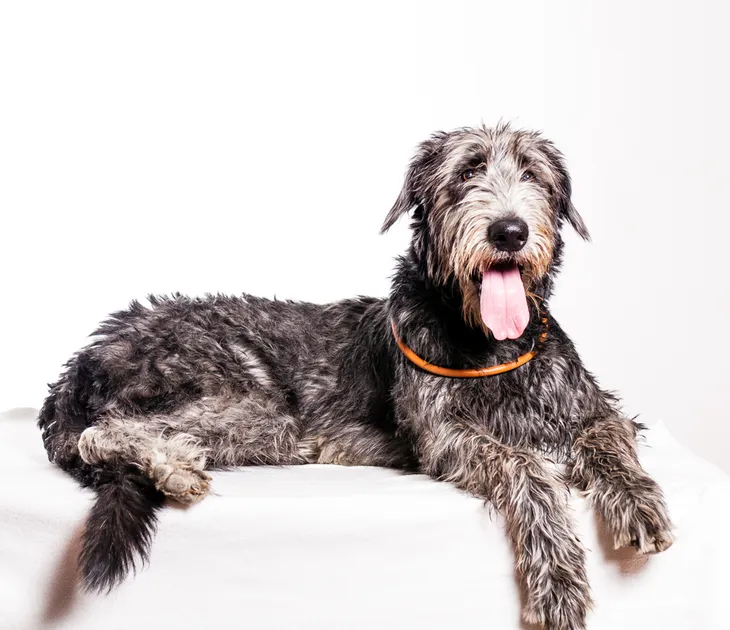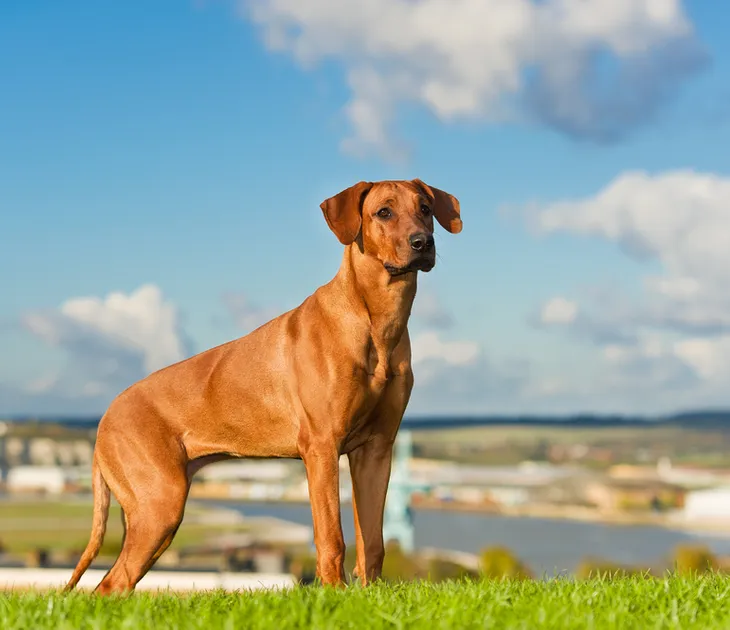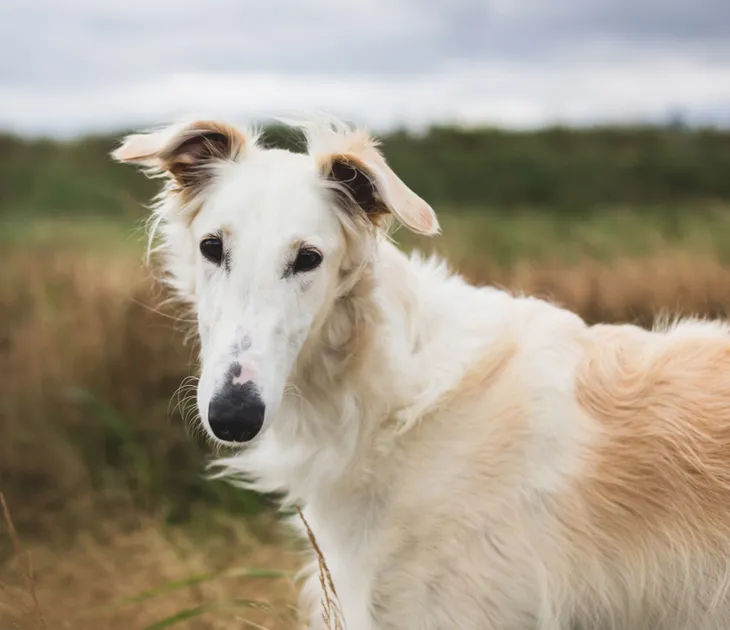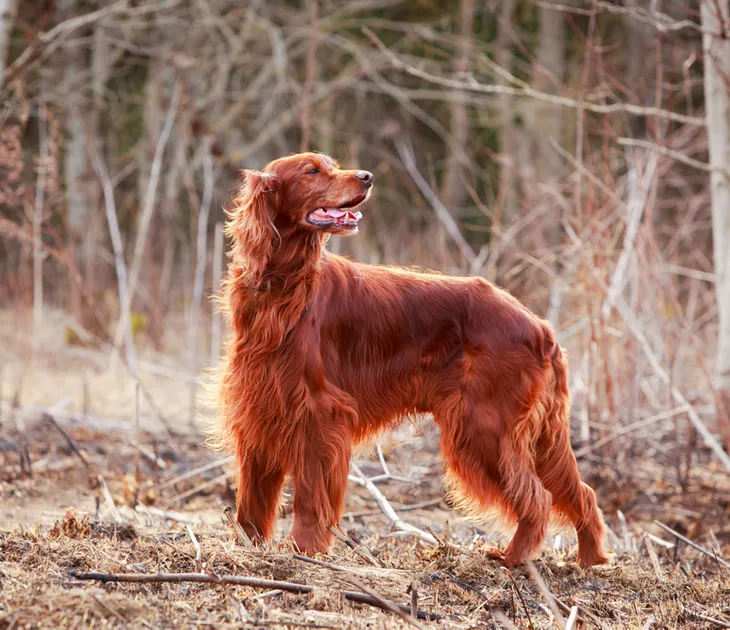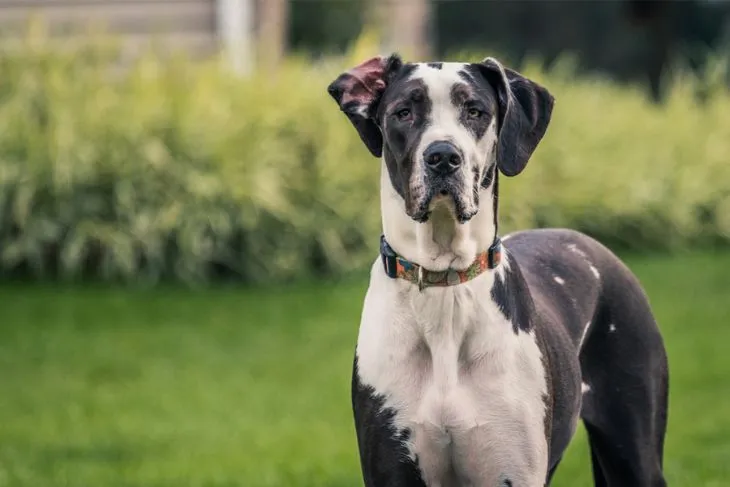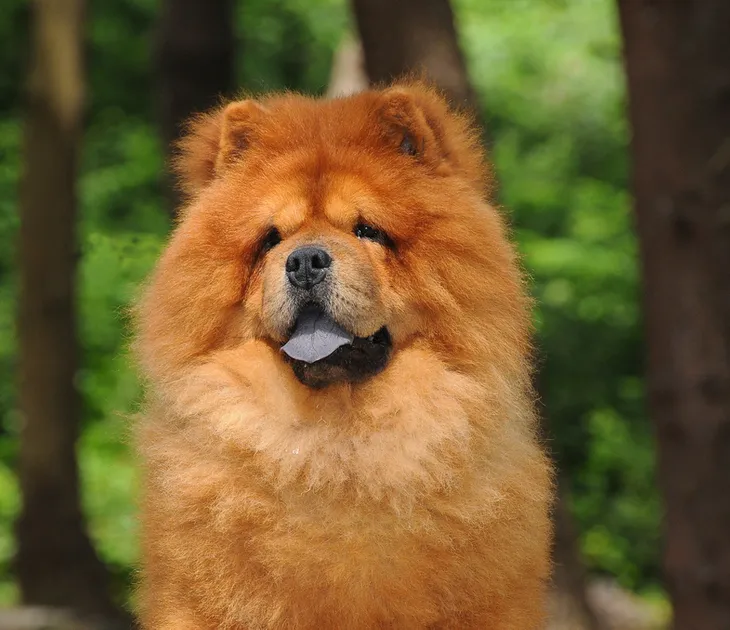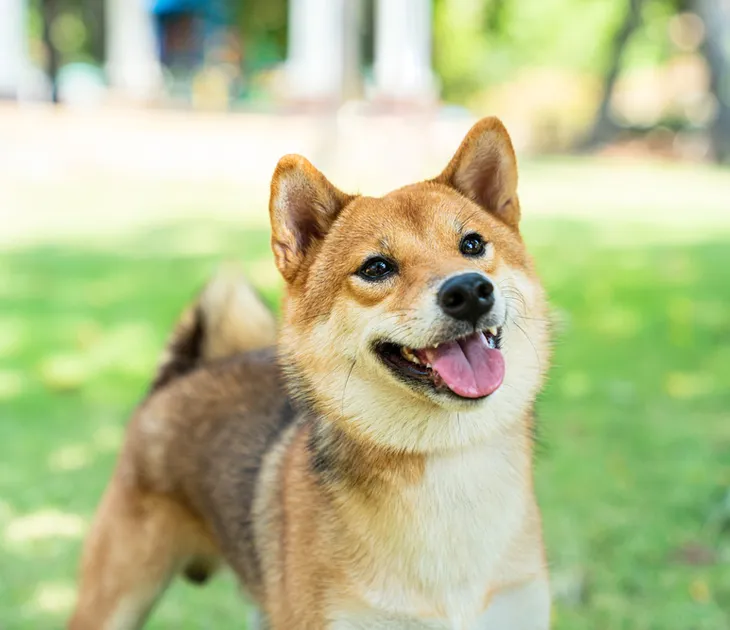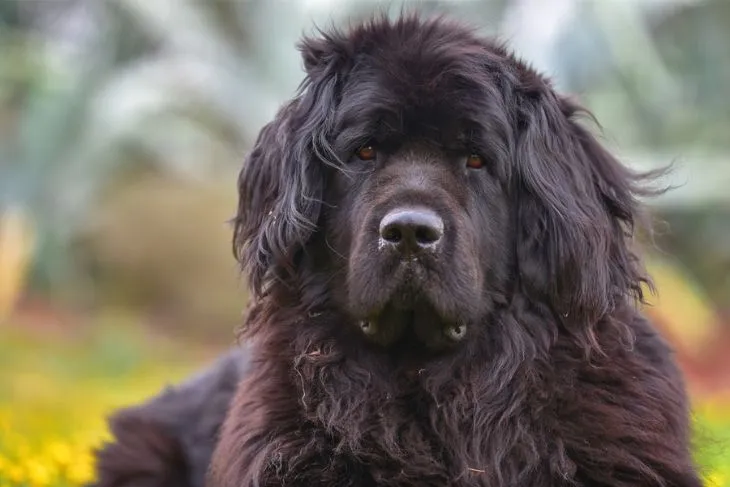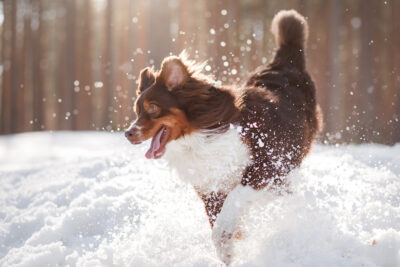Dog people love their pets. We embrace all the little nuisances that come with them — the shedding, drool, paw prints on the floors…the list goes on! Barking is another signature canine trait that can be undesirable, especially if it happens a lot.
People who want a dog but live in an apartment building or any kind of close proximity to their neighbours might want to consider a breed with a low tendency to bark. While there is no such thing as a dog that doesn’t bark at all, the following 13 dog breeds are known for being relatively quiet and rarely barking…
Saint Bernard
Saint Bernards are one of the most easily recognizable breeds thanks to the hit ’90s film, Beethoven. A true gentle giant, these big dogs are extremely affectionate, loyal, and surprisingly quiet. They will only bark if they are trying to alert their owners to danger.
These dogs can make great family pets because they are eager to please. However, due to their size, owners should manage them with training. According to the Spruce Pets they are easily distracted so maintaining control is key.
Cavalier King Charles Spaniel
This is a big name for such a tiny little dog! Even though small dogs have a reputation for being yappy, Cavalier King Charles spaniels are fairly quiet. Now they aren’t silent. If they aren’t getting enough attention, left alone for long periods of time, or feeling neglected, they will bark. But this can be expected of any dog under those circumstances.
The amount of barking a Cavalier King Charles spaniel will do depends on their emotional state and what they are trying to say. The Spruce Pets notes this dog can also change their bark depending on these things. Usually a bark is for protection, alarm, fear, or due to separation anxiety.
Greyhound
One of the few or only hounds that are actually quiet, the greyhound is considered a quiet breed. This may be due to the fact that they were bred to chase their prey silently, explains Reader’s Digest. While they do need a moderate amount of exercise, they are known for being a bit of a couch potato as they enjoy lounging around. They also have a fairly easy going temperament.
The only time greyhounds become overly vocal is when they are left alone. This is because they can form very close bonds with their families and can develop a bit of separation anxiety. The best way to correct this is with some behavioral training.
Basenji
Basenji’s are known as the “barkless dog.” One of the reasons they don’t bark is because of the shape of their larynx. Reader’s Digest explains that due to its unusual shape they virtually can’t bark. Instead, they yodel!
While to some this might seem even more annoying, don’t worry. The source assures that despite their affectionate yodel, they are still known for being a relatively quiet dog. They are very smart and energetic, so Basenji’s require lots of exercise and training. When properly cared for they make very happy companions.
Scottish Deerhound
Also sometimes referred to as simply Deerhound, the Scottish Deerhound is a large breed of sighthound bred to hunt red deer. They have a very similar appearance to the greyhound, but with a thicker, more coarse coat and larger heavy-boned stature.
These dogs make great family pets because their personality is quiet, dignified, and polite. While they certainly aren’t lap dogs, they don’t require a huge amount of exercise. Good Housekeeping describes them as having “middle-of-the-road” energy. They’ll enjoy a good run around outside, but then have a big nap at home.
Rhodesian Ridgeback
The name Ridgeback comes from the way their coat and color appears like a ridge on their back. This breed of dog originates in Africa and was bred to hunt and guard its homes, explains the Spruce Pets. Since then it’s become a popular choice among families in the U.S.
One of the reasons people love this dog is because they don’t generally bark a lot. They will bark the odd time to alert their owners to something or when they are bored, but overall these dogs are not known for being very vocal.
Borzoi
Borzoi’s have a very calm, agreeable temperament and are even described by the American Kennel Club as being “quiet and catlike.” This is likely because they don’t bark much. Another thing key characteristic that’s hard to ignore is their appearance. These dogs are very tall and skinny and can run like the wind at 40 miles per hour when sprinting.
While it’s fun to watch them run free with their graceful glide and long flowy hair, because they run so fast it’s not wise to let them off leash. Unless they are trained very well! Aside from this, Borzoi’s are affectionate, loyal, and rarely bark making them a great option for a family pet.
English and French Bulldog
Confined to a small space like an apartment but still want to own a dog? The French bulldog is the perfect option. They are happy apartment dwellers and don’t need a lot of exercise outside a small brisk walk. In fact, due to their squished noses they actually need to do a lot of lounging around and are happiest in temperate climates. Another bonus? They rarely bark.
The English bulldog is similar to the French bulldog in that they don’t bark a whole lot and are perfectly happy taking a long nap on the couch. In fact, you might find it difficult to get them roused enough for a big, long walk.
Irish Setter
The Irish Setter is a beautiful dog with a unique appearance. These dogs stand out in a crowd with their long silky red coat. Irish setters are hunting dogs, not guard dogs which is why they aren’t as vocal as other breeds. They tend to only vocalize when tracking down prey. So unless using them for that purpose, don’t expect much barking from them.
Since these dogs were originally bred to work, they aren’t the average family dog. Irish Setters require a lot of exercise. If that’s not a problem, they make really great companions thanks to their sweet nature.
Great Dane
Great Danes are known for being gentle giants. Despite their size (which certainly comes with its own set of struggles) they are a relatively low maintenance breed. Just make sure you’re okay with some drool here and there! They are protective of their home and loved ones, and surprisingly one of the quietest breeds.
These dogs rarely ever bark and if they do it’s only to alert and protect. They might bark if someone comes into their space or to greet someone, or if they are bored and being ignored for too long.
Chow Chow
You can certainly pick a chow chow out in a crowd. These dogs have a very unique appearance looking like soft, cuddly little teddy bears. They also have a signature bluish black tongue. The chow chow is a stoic, independent dog that rarely ever barks.
The only time they’ll make a noise is if they are alerting their owners to danger. But according to the Sprue Pets, even then they aren’t all that loud. Chow chows also have a reputation for being aggressive, but the source notes this is mainly as result of their protective nature.
Shiba Inu
Shiba Inu’s are so quiet they often come off as standoffish. They are usually described as being very reserved and shy around strangers. The Spruce Pets says they are stoic, but very loyal to their family. People love how low maintenance they are. Shiba Inu’s require very little grooming and their exercise needs are average.
Another big selling point is that they don’t bark very often. However, one downfall that can be a deal breaker is that they are very independent in nature which means they can be difficult to train. This might not make them a good choice for first time dog owners.
Newfoundland
Similar to some of the other large dog breeds on this list, the Newfoundland breed is very quiet, gentle, and affectionate. They are extremely loyal to their humans and very rarely bark, if at all. The only time they will bark is if they feel the need to warn their owners about something. Other than that they remain silent and stoic.
You don’t see these dogs very often because they require a lot of care. Obviously their size plays a role in that as proper accommodation is necessary, but they also need a lot of exercise. Some plus’s of Newfoundlanders are that despite their long, thick coat, they don’t require a ton of grooming and according to the Spruce Pets most respond well to training.
